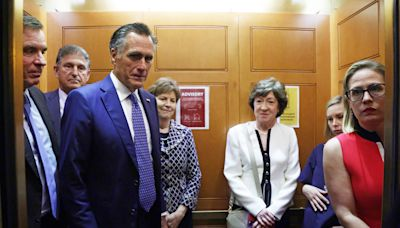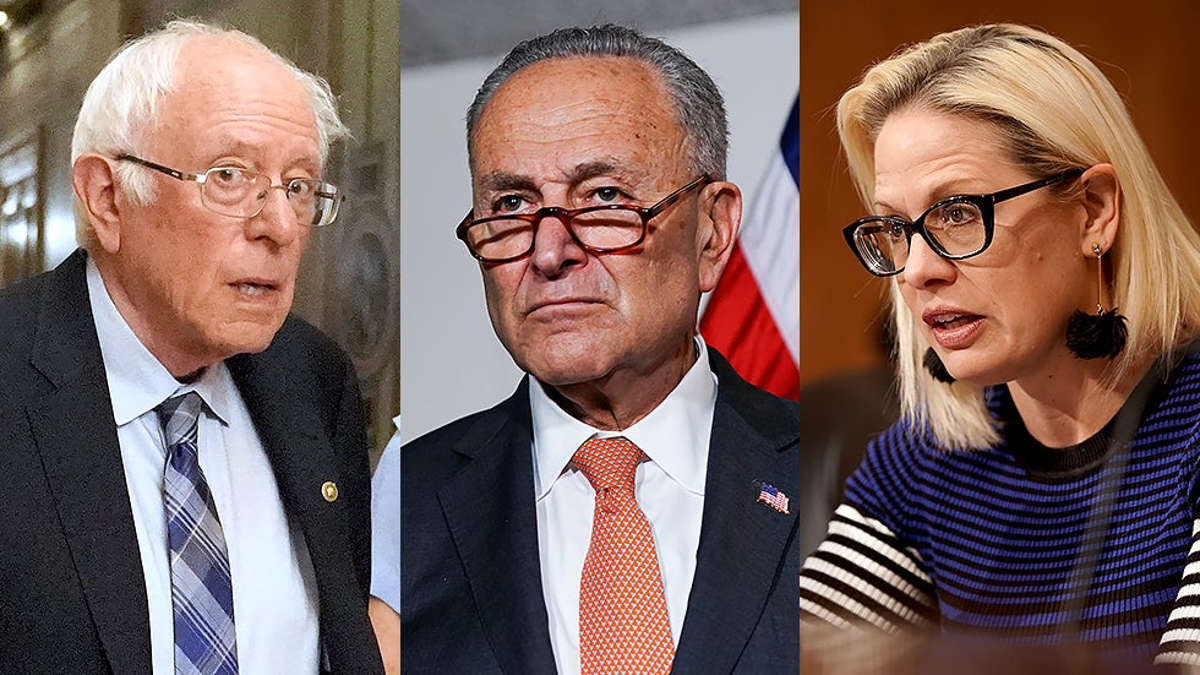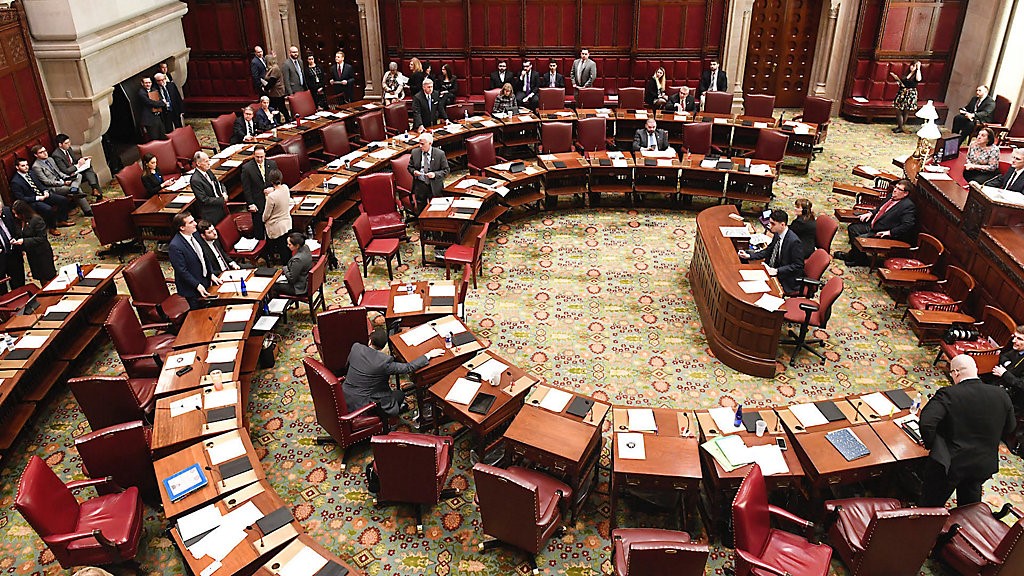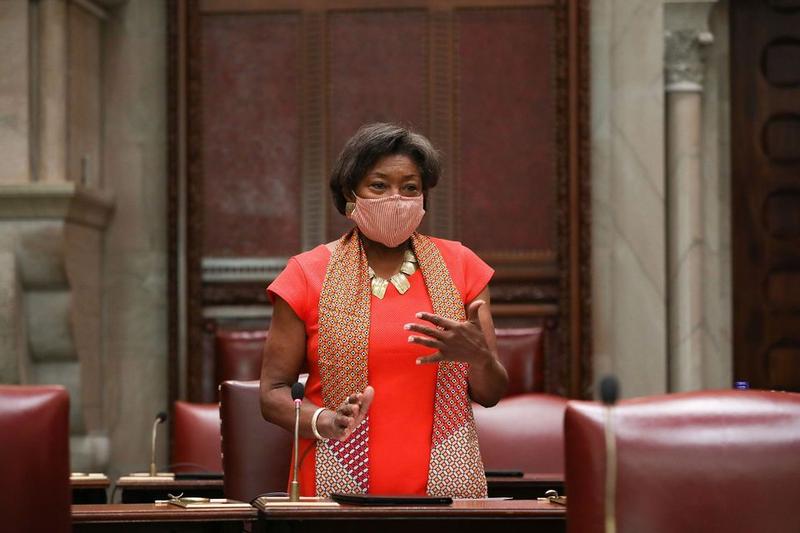Good Morning from Washington, D.C.
 Warner of Virginia, and Republicans—Sen. Bill Cassidy of Louisiana, Sen. Susan Collins of Maine, Sen. Lisa Murkowski of Alaska, Sen. Rob Portman of Ohio, Sen. Mitt Romney of Utah) announced a bipartisan agreement on infrastructure. “Our group — comprised of 10 Senators, 5 from each party — has worked in good faith and reached a bipartisan agreement on a realistic, compromise framework to modernize our nation’s infrastructure and energy technologies. This investment would be fully paid for and not include tax increases,” the Senators said in a joint statement. While the group did not publicly reveal specifics of the agreement, several sources at the Capitol said they have crafted a package that includes:
Warner of Virginia, and Republicans—Sen. Bill Cassidy of Louisiana, Sen. Susan Collins of Maine, Sen. Lisa Murkowski of Alaska, Sen. Rob Portman of Ohio, Sen. Mitt Romney of Utah) announced a bipartisan agreement on infrastructure. “Our group — comprised of 10 Senators, 5 from each party — has worked in good faith and reached a bipartisan agreement on a realistic, compromise framework to modernize our nation’s infrastructure and energy technologies. This investment would be fully paid for and not include tax increases,” the Senators said in a joint statement. While the group did not publicly reveal specifics of the agreement, several sources at the Capitol said they have crafted a package that includes:- $1.2 trillion of spending over eight years;
- $974 billion spent over the first five years;
- The plan calls for $579 billion dollars of new spending;
- The spending will be focused on core, physical infrastructure;
- The plan will be paid for without tax hikes;
- Many of the specific details still need to be ironed out.
While the deal is a positive step, it faces an uphill climb. It still must secure the blessing of the White House, Congressional Leaders on both sides of the aisle, and rank-and-file members. Especially, as likely, if the “pay for” includes repurposing unspent COVID relief funds. The largest obstacle will come from Progressive Democrats, who for weeks have been begging the Biden Administration to “go big” and abandon Republicans at the table by utilizing Budget Reconciliation. Specifically, Progressives are worried that passing a bipartisan infrastructure package consisting of the most “popular” infrastructure spending priorities—roads, bridges, rail, public transport, airports and rural broadband internet—will make it tougher to marshal support for a bigger reconciliation package down the road. As we discussed in last week’s newsletter based on the Parliamentarian’s ruling, this could be Democrats’ only shot at a transformative package that includes all of the measures proposed in the American Jobs Plan and the American Families Plans—such as childcare and climate provisions. “We need to be mindful, the American people want something big and bold, that’s how we’ll be judged,” one anonymous Democratic Senator said of the deal. “If it fails to meet the moment, it’s too small. In this instance, bad policy is bad politics,” said the lawmaker, who warned that a package that is too small “is bad for all of us in 2022.” We will see if the bipartisan group of Senators can make meaningful progress this week.
Congressional Leaders on both sides of the aisle, and rank-and-file members. Especially, as likely, if the “pay for” includes repurposing unspent COVID relief funds. The largest obstacle will come from Progressive Democrats, who for weeks have been begging the Biden Administration to “go big” and abandon Republicans at the table by utilizing Budget Reconciliation. Specifically, Progressives are worried that passing a bipartisan infrastructure package consisting of the most “popular” infrastructure spending priorities—roads, bridges, rail, public transport, airports and rural broadband internet—will make it tougher to marshal support for a bigger reconciliation package down the road. As we discussed in last week’s newsletter based on the Parliamentarian’s ruling, this could be Democrats’ only shot at a transformative package that includes all of the measures proposed in the American Jobs Plan and the American Families Plans—such as childcare and climate provisions. “We need to be mindful, the American people want something big and bold, that’s how we’ll be judged,” one anonymous Democratic Senator said of the deal. “If it fails to meet the moment, it’s too small. In this instance, bad policy is bad politics,” said the lawmaker, who warned that a package that is too small “is bad for all of us in 2022.” We will see if the bipartisan group of Senators can make meaningful progress this week.
Back in New York…
The 2021 Legislative Session wrapped up early last Friday morning. However, as is often the case in the “new normal” of remote votes and virtual hearings, expect rumors throughout the summer about legislators returning for a Special Session. At the very least, the Senate will likely return, at least briefly, to act on some appointments, including confirming the head of the state’s new cannabis management office (The nominee for Chair of the Cannabis Control Board is rumored to be former Assembly Member and Cuomo aide Karim Camara; Cuomo had floated his current “pot czar” for Executive Director for the Office of Cannabis Management, but after pushback from the Legislature, has no immediate plans to name a nominee), to implement the state’s new legal marijuana industry.
normal” of remote votes and virtual hearings, expect rumors throughout the summer about legislators returning for a Special Session. At the very least, the Senate will likely return, at least briefly, to act on some appointments, including confirming the head of the state’s new cannabis management office (The nominee for Chair of the Cannabis Control Board is rumored to be former Assembly Member and Cuomo aide Karim Camara; Cuomo had floated his current “pot czar” for Executive Director for the Office of Cannabis Management, but after pushback from the Legislature, has no immediate plans to name a nominee), to implement the state’s new legal marijuana industry.
Senate Majority Leader Andrea Stewart-Cousins left the door open to a special session after the June 23rd primaries, saying talks continue on some issues and the Senate would return to act on them “if necessary.” That said, legislators left a number of issues on the table, including big picture items like the “Clean Slate Bill,” a bill to restructure the top leadership at the Metropolitan Transportation Authority, the New York Health Act, the New York Privacy Act, and overarching legislation to regulate the growing “gig” economy in New York State, as well as the aforementioned confirmations of key nominations by the Senate.
23rd primaries, saying talks continue on some issues and the Senate would return to act on them “if necessary.” That said, legislators left a number of issues on the table, including big picture items like the “Clean Slate Bill,” a bill to restructure the top leadership at the Metropolitan Transportation Authority, the New York Health Act, the New York Privacy Act, and overarching legislation to regulate the growing “gig” economy in New York State, as well as the aforementioned confirmations of key nominations by the Senate.
Of course, on-going investigations into Governor Cuomo’s nursing home death undercount, sexual harassment allegations, and violations of the Public Officers Law, by both Attorney General Letitia James and the U.S. Attorney for the Eastern District of New York could come to a conclusion at any time this summer, completely flipping any existing dynamics on their head.
-Jack O’Donnell
FOR DAILY UPDATES, FOLLOW US:
The Troopers Who Guard Cuomo Being Interviewed in Harassment Probe
joe Biden: the incredible vanishing president
Images of Joe Biden giving speeches and shaking hands with foreign dignitaries during his ongoing trip to Europe will take up space in the news over the coming week. But once he returns to the United States, the pattern that’s prevailed over the past five months will likely resume. [Read more.]
NYS Legislature: new member spotlight
Rep. Andrew Garbarino (R-New York’s 2nd Congressional District)
In November 2020, Rep. Andrew Garbarino was elected to his first term representing New York’s 2nd Congressional District on Long Island after he defeated Democrat Jackie Gordon. The seat had been held since 1993 by 14-term incumbent and well known centrist Republican Peter King, who announced his retirement earlier in 2020.
Prior to his election to Congress, Rep. Garbarino served the 7th district in the New York Assembly for four terms. Throughout his time in the Assembly, he focused on issues like increasing state funding for Long Island school districts, protecting Long Island’s environment, and opposing tax hikes.
Rep. Garbarino was born and raised in Sayville, NY and earned his BA in History and Classical Humanities from The George Washington University. He received his Juris Doctorate from Hofstra University on Long Island and joined his father at their family law firm in private practice in Sayville.
In the 117th Congress, he will serve on the Committee on Homeland Security (which was chaired by his predecessor Rep. King from 2005-2007 and 2011-2013) and the Committee on Small Business. He is also a member of the powerful bipartisan Congressional Problem Solvers Caucus and the Republican Main Street Partnership.


